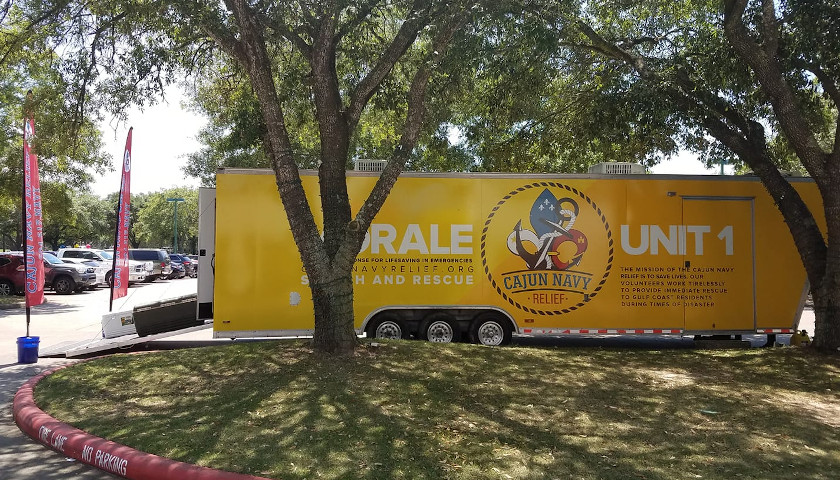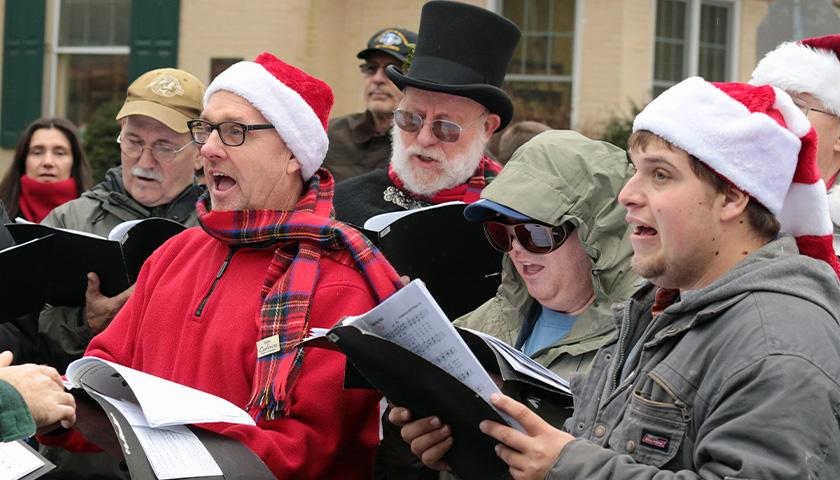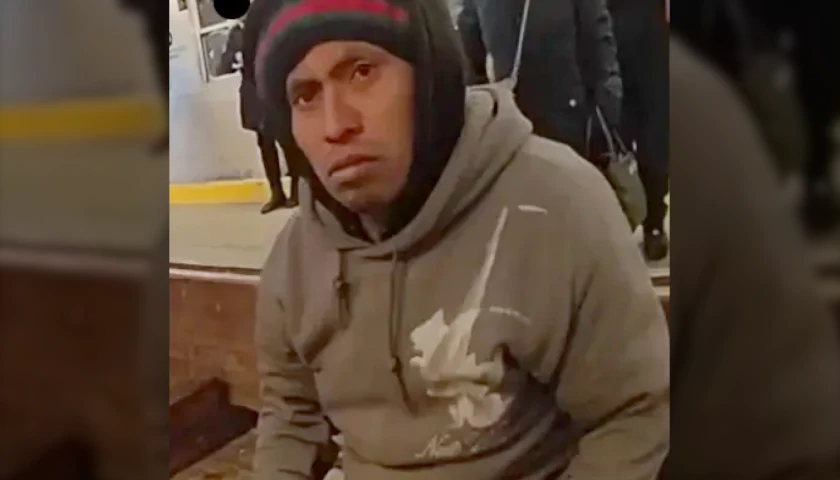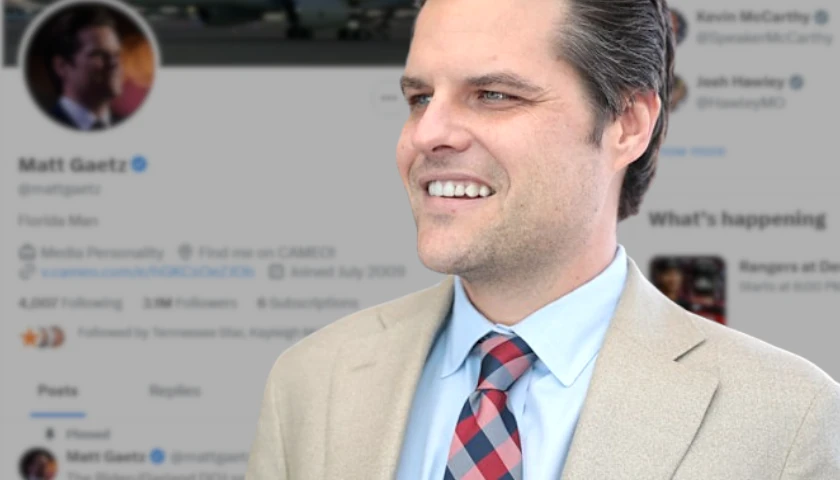by Matt Haines
NEW ORLEANS, LA. – Louisiana boaters who repeatedly mobilized to rescue people stranded by catastrophic floodwaters are now working to halt the spread of COVID-19 on dry land.
Volunteers with the Cajun Navy Relief and Rescue have been collecting and distributing medical supplies to protect Louisiana health care workers and their patients.
Beneficiaries include Visiting Angels, which provides in-home care for the elderly and disabled — those believed to be at greatest risk from the pathogen.
The leadership team at Visiting Angels in New Orleans first discussed their coronavirus response in January, understanding that masks would be essential for their 200 caregivers in the area.
“Our employees are in the homes of some of the region’s most vulnerable people,” Visiting Angels care coordinator Donna White explains. “How can they be expected to do that without masks? It’s not safe for them, and it’s really not safe for our elderly clients.”
White says her team first attempted to purchase masks in February but had no luck. By mid-March, when New Orleans emerged as a new COVID-19 hotspot, the situation was dire.
Desperate for help, White reached out to citizen-led groups that have been sewing masks for health care professionals. She received some masks, but not nearly enough.
Then she saw a post by the Cajun Navy Relief and Rescue, offering to help those lacking adequate personal protective equipment, or PPE.
“I reached out to them on March 30 and said we had been searching for 200 masks for two months,” White recalls. “Within days the Cajun Navy was delivering large orders of masks to our door.”
Providing swift assistance when others cannot is not new to the Cajun Navy, whose name refers to the descendants of French-speaking immigrants who settled in Louisiana in the 18th century.
History
The Cajun Navy began in 2005, in the immediate aftermath of Hurricane Katrina that devastated much of Louisiana with punishing winds and catastrophic flooding.
Then-Louisiana state Senator Nick Gautreaux put out a plea to boaters across the southwestern portion of the state, known as “Cajun Country” and famous for its fishing and bayous. He asked for help in rescuing people stranded by floodwaters.
Gautreaux expected 20 or 25 boats to show up. Instead, at least 350 boat operators reported for duty.
Todd Terrell was one of them. He had family and a seafood business in the area and was eager to help.
“We knew a lot of fishermen,” he said, “and if you could get your hands on a boat or a truck, you were rescuing everyone you could. Friends. Family. Strangers. It didn’t matter.”
The makeshift flotilla was credited with rescuing more than 10,000 New Orleanians from their flooded homes and rooftops.
Organizing
In 2016, record rainfall caused rivers to overflow and submerged thousands of homes around Baton Rouge. Once again, Louisianans became stranded amid rising waters. Without prompting, volunteers took to their boats to rescue fellow citizens, informally referring to themselves as the “Cajun Navy.”
Now retired, Lt. Gen. Russel L. Honoré commanded the U.S. military’s relief efforts during Hurricane Katrina. In an interview with NPR during the Baton Rouge flooding, he credited the efforts of volunteers.
“With all due respect to the organized first responders,” he said, referring to government-run efforts, “the Cajun Navy stood up and, again, saved a lot of people’s lives.”
Since then, Louisiana boaters have expanded their reach and responded to hurricanes in nearby states, such as with Hurricane Harvey in Texas in 2017.
A second group, the United Cajun Navy, has many retired police officers, firefighters and military personnel with emergency and medical experience. Terrell, who founded the group, says both volunteer organizations can become nimbler and respond more quickly than federal relief operations directed from Washington.
“When one of our volunteers returns from a rescue with a boatload of victims, FEMA wants us to file a report or fill out paperwork,” Terrell explains, referring to the Federal Emergency Management Agency. “But that’s not who we are. When we were rescuing these guys, we left another boatload of their neighbors behind. All we’re thinking about is going back to get them.”
Different and the same
Volunteers stress a can-do attitude in the most difficult — and dangerous — situations.
“People don’t deserve what happens to them during a flood, a hurricane or a pandemic,” says David Lay, a volunteer with the United Cajun Navy. “It changes their life in an instant. And, whether it’s getting them safely to land or providing masks for frontline health care workers, we’re here to save lives.”
Lay knows loss and sacrifice all too well. His leg became infected while making rescues in contaminated water during Hurricane Harvey. The leg was amputated, but he continues to volunteer. Lay is currently assisting residents in Mississippi recovering from Easter Sunday tornadoes (on April 12).
Unfortunately, Lay isn’t the only volunteer who has suffered injury or worse. On April 13, while removing a tree that had fallen on a resident’s home, Patrick Hadley — a man with whom Lay volunteered for years — died from a heart attack.
Lay and his crew were devastated. Still, they returned to volunteer the next day.
“We went home that night to hug our families, but we all agreed we had to come back out,” Lay said. “Helping people is what brings us all together. Now we’re doing it in his honor.”
While the Cajun Navy is most famous for boat rescues, volunteers understand that COVID-19 requires a different kind of effort. Colleen Udell, president of The Cajun Navy Relief and Rescue says their mission to save lives during times of crisis is as applicable as ever.
Donna White from Visiting Angels agrees. “By providing masks, the Cajun Navy allowed us to continue our in-home care when the elderly need protecting the most.”
The United Cajun Navy, meanwhile, has delivered meals, masks and gloves to hospitals and health care workers. The organization also has supported local fishermen by buying their seafood to feed the hungry.
When asked how he is able to attract so many volunteers, Terrell says heroes emerge during frightening times.
Udell agrees, adding, “There’s always something you can do to help your community, and the Cajun Navy proves that helping during a disaster is not out of an ordinary person’s reach.”
– – –
Photo “Cajun Navy Relief Truck” by Cajun Navy Relief.





